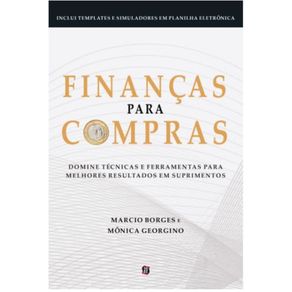-
DEPARTAMENTOS
- ANIMAIS DE ESTIMAÇÃO
- ARTES
- AUTO AJUDA
-
BEM ESTAR E LAZER
-
CATEGORIAS
-
-
CULINÁRIA E GASTRONOMIA
-
CATEGORIAS
-
-
ESPORTES
-
CATEGORIAS
-
- INFANTIL
-
RELIGIÃO
-
CATEGORIAS
-
- ADMINISTRAÇÃO E NEGÓCIOS
-
CIÊNCIAS BIOLÓGICAS E NATURAIS
-
CATEGORIAS
-
- DIREITO
- ECONOMIA
-
MEDICINA
-
CATEGORIAS
-
-
TODOS DEPARTAMENTOS
-
INTERESSE GERAL
-
LIVROS TÉCNICOS
-
- DISCIPLINAS
- ACESSÓRIOS
- FORMATURA
- PAPELARIA
In Our Reach
Cód:
491_9781735415697
In Our Reach
Autor:
Editora:
Código:
491_9781735415697
Vendido e entregue por Um Livro
Why were so many Americans unprepared for COVID-19s financial fallout? Within weeks or months, it eviscerated their earnings, savings, credit, investments, and insurance. The pandemics terrible effects will be felt in millions of households for years. But it didnt affect everyones financial wellbeing, did it?Since 1995, Ive helped tens of thousands of people improve their financial health. While they represent a wide range of diverse backgrounds, the overwhelming majority share three general characteristics. First, they derive the bulk of their financial wherewithal by working as traditional employees. Second, they manage part or all of their wealth without the assistance of paid advisors. And third, they dont need, want, or have time for meaningless busywork, daily affirmations, or mumbo jumbo.Over time, Ive noticed that some of the people that I meet and help consistently do all of the right things. They stand apart from their peers but arent the usual suspects (e.g., high income, prestigious degrees, entrepreneurs). Theyre employees at all levels that exhibit conscious approaches, strong mindsets, and unrelenting devotions to succeeding in good times and bad.I realize that many people get their money insights at work, and from Google, YouTube, and Amazons Alexa, but I dont believe that serves them well. So, I wrote In Our Reach to begin a dialogue with people that I enjoy serving by giving them a straightforward and sustainable framework for getting ahead and revealing steps that their resourceful peers take by using the resources in their reach. I believe that its a better path, and I want to put the same strategies in your reach.This isnt a workbook, textbook, or vanity book. Its a 332-page guide offering practical insights and solutions to pre-paycheck and post-paycheck financial problems. It consists of 6 sections. The first helps readers develop a conscious approach to financial wellbeing and the last calls them to
Veja mais


































